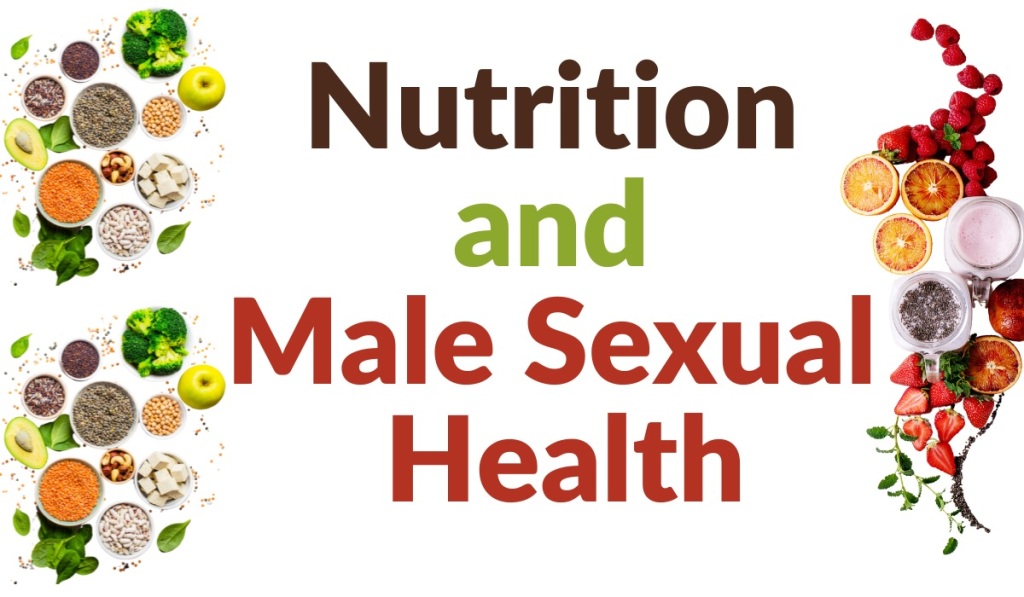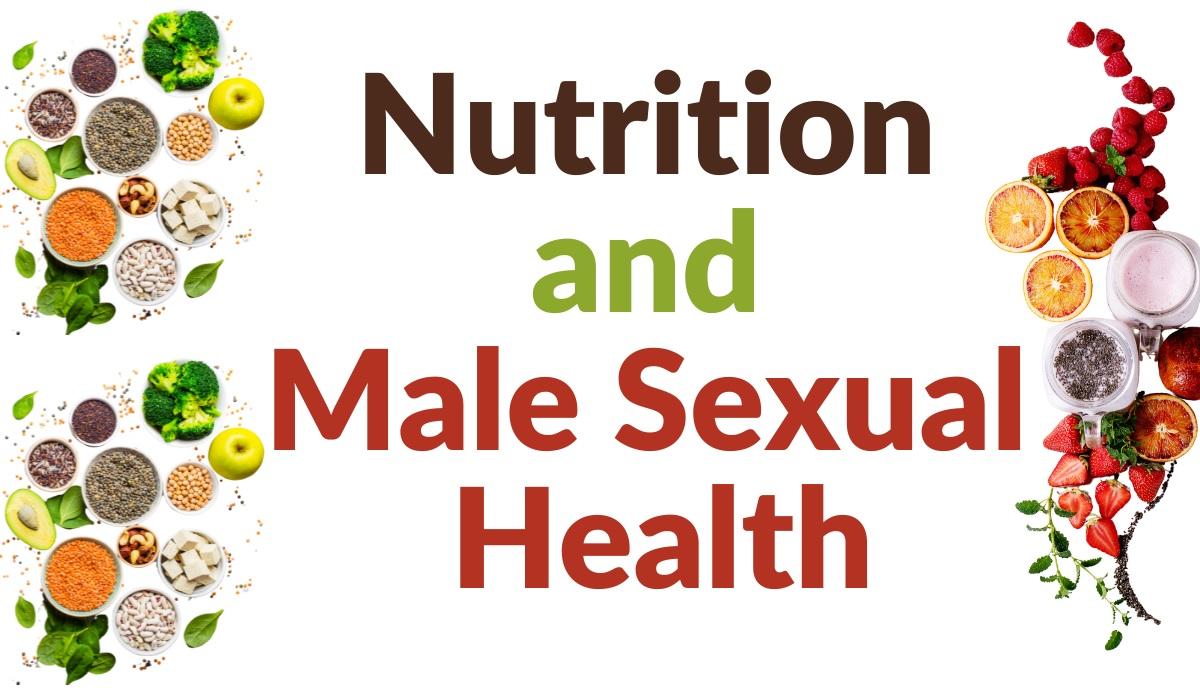When it comes to sexual health, many factors can influence our overall well-being and performance. One often overlooked aspect is nutrition. The food we consume plays a crucial role in maintaining a healthy body and mind, which in turn affects our sexual health. In this article, we will explore the connection between nutrition and sexual health and how making the right dietary choices can positively impact your intimate life.
Proper nutrition is essential for the body to function optimally. It provides the necessary nutrients, vitamins, and minerals that support various bodily functions, including those related to sexual health. For example, certain foods can boost blood flow, enhance hormone production, and improve overall cardiovascular health, all of which are crucial for a healthy sex life.
One key aspect of nutrition that directly affects sexual health is the consumption of antioxidants. Antioxidants are compounds that help protect our cells from damage caused by free radicals. Free radicals can contribute to cellular aging and inflammation, both of which can negatively impact sexual function. By including antioxidant-rich foods in your diet, such as berries, dark chocolate, and green leafy vegetables, you can help combat oxidative stress and promote better sexual health.
In addition to antioxidants, the macronutrients we consume also play a role in sexual health. Protein, for example, is essential for the production of hormones and neurotransmitters involved in sexual desire and arousal. Including lean sources of protein, such as poultry, fish, and legumes, can help support a healthy libido.
Furthermore, healthy fats are crucial for hormone production and overall cardiovascular health. Omega-3 fatty acids, found in fatty fish, walnuts, and flaxseeds, have been shown to improve blood flow and reduce inflammation, which can enhance sexual function. Incorporating these healthy fats into your diet can have a positive impact on your sexual health.
It’s also important to consider the role of vitamins and minerals in sexual health. For example, vitamin C is essential for collagen production, which helps maintain the health of blood vessels. Vitamin E, on the other hand, is known for its antioxidant properties and can help protect against oxidative stress. Additionally, minerals such as zinc and magnesium are involved in hormone production and can support a healthy libido.
Overall, the link between nutrition and sexual health is undeniable. By adopting a well-balanced diet that includes a variety of nutrient-dense foods, you can support your body’s natural functions and promote better sexual health. It’s important to remember that individual needs may vary, and consulting with the best sexologist in Delhi or registered dietitian can help you create a personalized nutrition plan that addresses your specific needs and goals.
The Role of Nutrients in Sexual Health

Proper nutrition is essential for the optimal functioning of our bodies, including our reproductive systems. Certain nutrients play a vital role in supporting sexual health and performance. Let’s take a closer look at some of these nutrients:
1. Zinc
Zinc is an essential mineral that plays a key role in various bodily functions, including the production of testosterone, a hormone crucial for both male and female sexual health. Zinc deficiency has been linked to reduced libido and sexual dysfunction. Foods rich in zinc include oysters, beef, poultry, nuts, and seeds.
2. Vitamin C
Vitamin C is known for its immune-boosting properties, but it also plays a role in sexual health. It helps improve blood flow to the genital area, enhancing arousal and sexual pleasure. Citrus fruits, strawberries, kiwi, and bell peppers are excellent sources of vitamin C.
3. Omega-3 Fatty Acids
Omega-3 fatty acids are known for their cardiovascular benefits, but they also contribute to sexual health. These healthy fats help improve blood circulation, reduce inflammation, and support hormone production. Fatty fish like salmon, chia seeds, flaxseeds, and walnuts are rich sources of omega-3 fatty acids.
4. B Vitamins
The B vitamins, including B6, B12, and folic acid, are essential for maintaining a healthy nervous system. They help regulate mood, reduce stress, and increase energy levels, all of which are important for a satisfying sexual experience. Whole grains, leafy greens, eggs, and legumes are good sources of B vitamins.
In addition to these key nutrients, there are several other dietary factors that can impact sexual health. For example, maintaining a balanced diet that includes a variety of fruits, vegetables, whole grains, and lean proteins can provide the necessary nutrients for overall well-being, which in turn can positively affect sexual health. Adequate hydration is also important, as it helps maintain proper blood flow and lubrication.
Furthermore, it is worth noting that certain lifestyle factors can also influence sexual health. Regular exercise, for instance, can improve blood circulation, boost energy levels, and enhance body image, all of which can contribute to a healthier and more satisfying sex life. Additionally, managing stress and getting enough sleep are crucial for maintaining hormonal balance and overall well-being.
It is important to remember that sexual health is a multifaceted aspect of overall wellness, and nutrition is just one piece of the puzzle. However, by incorporating these key nutrients into your diet and adopting a healthy lifestyle, you can support your sexual health and enhance your overall well-being.
5. Poor Sperm Quality
Research has shown that a poor diet can negatively affect sperm quality in men. Diets high in processed foods, trans fats, and sugar have been linked to lower sperm count, reduced sperm motility, and abnormal sperm morphology. These factors can significantly impact male fertility and reduce the chances of conception.
6. Decreased Sexual Satisfaction
A diet lacking in nutrients can also affect sexual satisfaction. Certain vitamins and minerals, such as vitamin E and selenium, are essential for maintaining healthy nerve function and promoting sexual pleasure. When these nutrients are deficient in the body, it can lead to decreased sensitivity and pleasure during sexual activity.
7. Increased Risk of Sexual Dysfunction in Women
Just as poor diet can affect sexual health in men, it can also have negative consequences for women. A diet high in processed foods, refined carbohydrates, and unhealthy fats can disrupt hormonal balance in women, leading to conditions such as polycystic ovary syndrome (PCOS) and reduced sexual desire. Additionally, poor diet can contribute to vaginal dryness and discomfort during intercourse.
8. Psychological Impacts
A poor diet not only affects the physical aspects of sexual health but can also have psychological impacts. When individuals are not consuming a balanced diet, they may experience feelings of guilt, shame, and low self-esteem. These negative emotions can contribute to stress, anxiety, and depression, all of which can further impact sexual well-being.
Overall, it is clear that a poor diet can have significant consequences for sexual health. To maintain a healthy and satisfying sex life, it is essential to prioritize a balanced diet that includes a variety of nutrient-rich foods. By nourishing the body with the right nutrients, individuals can support their sexual well-being and enhance their overall quality of life.
9. Practice Portion Control
While it’s important to consume a variety of nutrient-dense foods, it’s also crucial to practice portion control. Overeating can lead to weight gain and increase the risk of conditions like obesity and diabetes, which can negatively impact sexual health. Listen to your body’s hunger and fullness cues and aim for balanced, moderate portion sizes.
10. Seek Professional Guidance
If you have specific concerns about your sexual health or are unsure about which dietary choices are best for you, it’s always a good idea to seek guidance from a sexologist in Delhi. They can provide personalized recommendations based on your individual needs and help you create a nutrition plan that supports your sexual well-being. By incorporating these tips into your lifestyle, you can take proactive steps towards improving your sexual health through nutrition. Remember, maintaining a healthy diet is just one aspect of overall sexual well-being, and it’s essential to prioritize other factors like emotional connection, communication, and stress management for a fulfilling intimate life.
